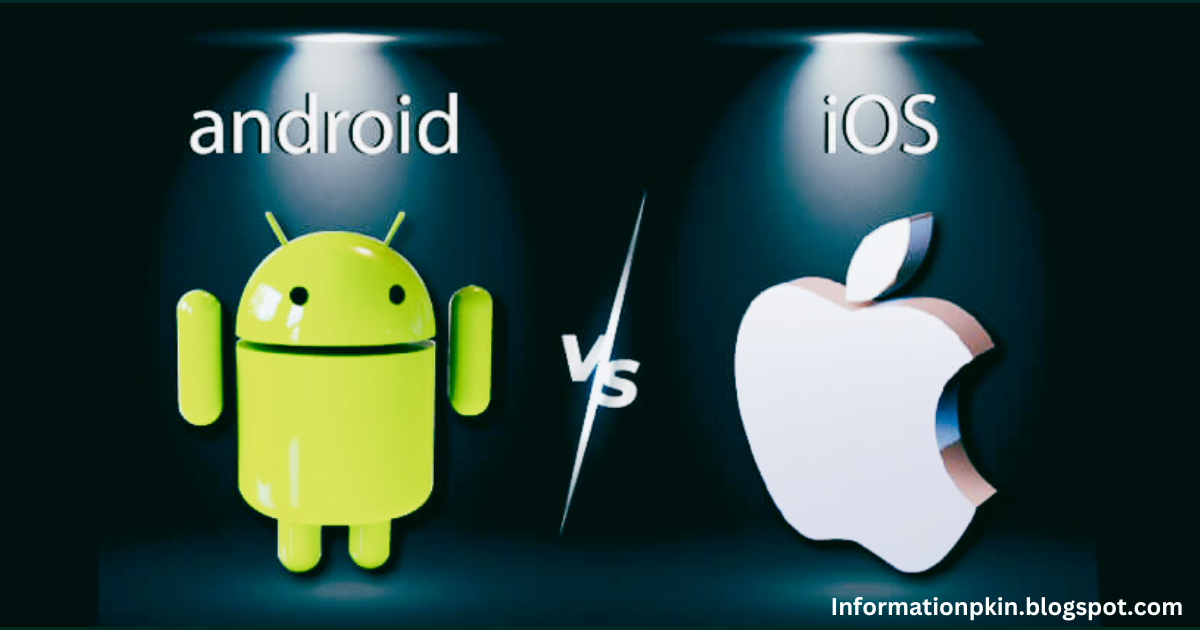Android vs. iOS: Exploring the Ongoing Debate
Introduction:-
The rivalry between Android and iOS has been a longstanding debate among smartphone enthusiasts and tech-savvy users. Both operating systems dominate the mobile market, each offering unique features and benefits. In this article, we will delve into the ongoing discussion of whether Android is better than iOS, examining various aspects such as customization, app ecosystem, user interface, security, and device compatibility. By weighing the strengths and weaknesses of each platform, readers can gain a deeper understanding of the Android versus iOS comparison.
1. Customization and Flexibility
- One of the key advantages of Android lies in its extensive customization options. Android devices offer users the freedom to personalize their smartphones according to their preferences. Users can choose from a wide range of home screen layouts, widgets, and third-party launchers, allowing for a unique and tailored user experience. Additionally, Android grants users access to system-level customization, enabling them to tweak settings, install custom ROMs, and modify the overall look and feel of the device.
- On the other hand, iOS takes a more controlled approach, providing a uniform and streamlined experience across its devices. While it lacks the same level of customization as Android, iOS offers a polished user interface and smooth user experience. The operating system is known for its intuitive design, seamless integration with other Apple devices, and consistent updates, ensuring a stable and secure environment for users.
2. App Ecosystem and Availability
- The app ecosystem is a critical factor in determining the overall user experience of a smartphone. Android boasts a vast and diverse app market, with the Google Play Store housing millions of applications. This extensive library provides users with a wide range of choices, from productivity tools to entertainment apps, catering to various needs and preferences. Moreover, Android allows users to sideload applications from third-party sources, further expanding the app availability.
- On the other hand, iOS is renowned for its curated and quality-controlled App Store. While the App Store offers a slightly smaller selection compared to the Google Play Store, it is known for its strict app approval process, ensuring a higher level of security and reliability. iOS apps are often perceived to be of superior quality, with developers prioritizing the platform for initial releases and updates. Additionally, iOS users benefit from the advantage of receiving timely updates and optimization for their devices due to Apple's tight control over hardware and software integration.
3. Security and Privacy
- Security is a major concern for smartphone users, and both Android and iOS have made significant strides in enhancing their security features. Android has made great progress in recent years, implementing features such as Google Play Protect, app sandboxing, and regular security patches. However, due to the open nature of the platform and its wider user base, it is more susceptible to malware and security vulnerabilities.
- Conversely, iOS has built a reputation for its strong emphasis on security and privacy. Apple's closed ecosystem, stringent app review process, and hardware-software integration contribute to a more secure environment. The company's commitment to user privacy is evident through features like App Tracking Transparency, which provides users with more control over their data.
4. Device Compatibility and Ecosystem Integration
- Android offers a diverse range of devices from various manufacturers, providing users with a wide spectrum of choices in terms of features, price points, and designs. This versatility allows users to select a device that aligns with their specific requirements and budget. Moreover, Android devices integrate seamlessly with other platforms and services, making them ideal for users who heavily rely on Google's ecosystem.
- In contrast, iOS offers a tightly integrated ecosystem across Apple's lineup of devices. This seamless integration allows users to effortlessly transition between their iPhone, iPad, Mac, and other Apple
Keywords:-
- Android vs iPhone



.png)
.png)


0 Comments